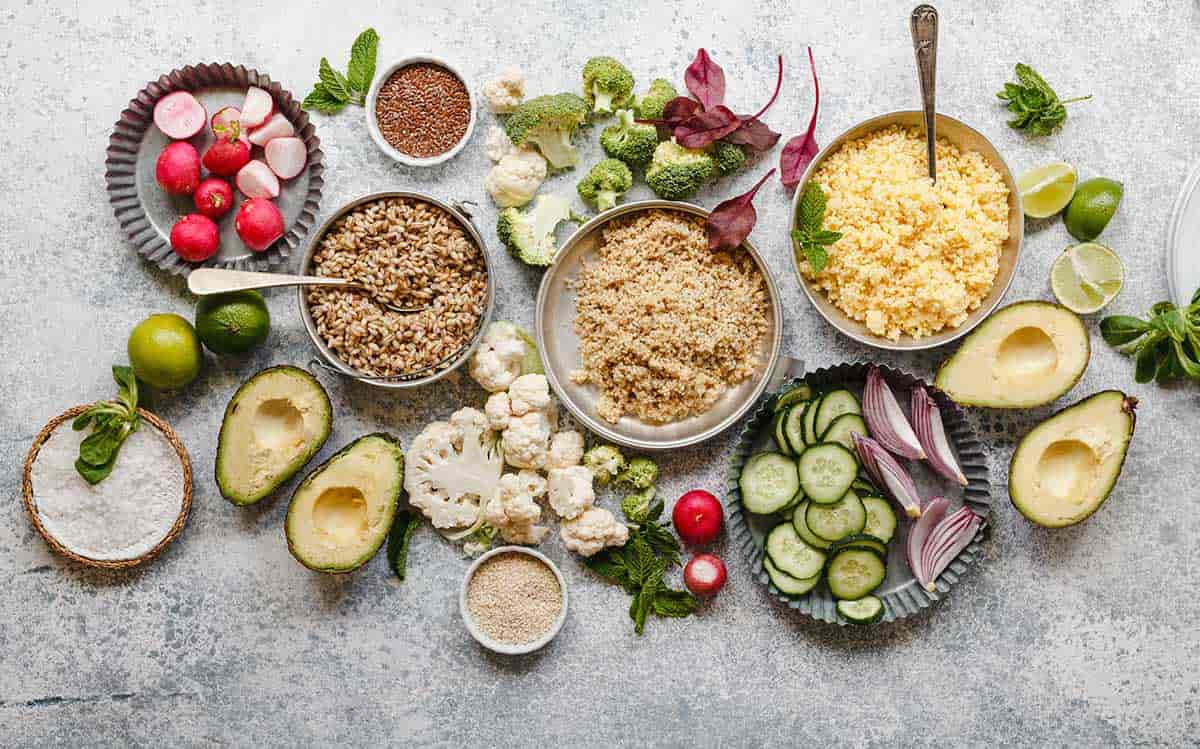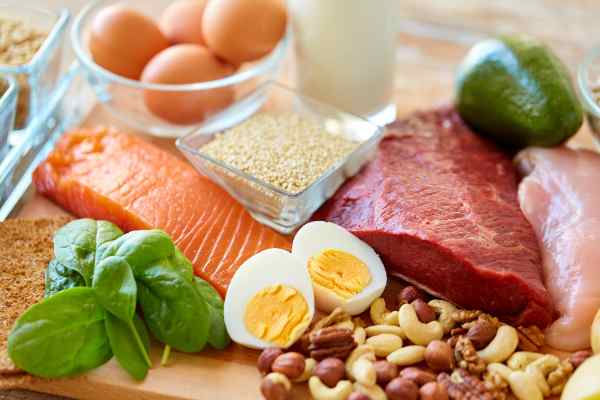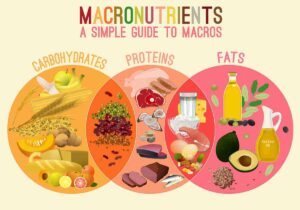It’s well-known that many nutrients are essential and that they’re good for your health. However, what many people don’t realize is that a lot of these important nutrients are neglected due to the typical Western diets lacking these all-important nutrients. Lacking these nutrients can lead to some problems that you may not even be aware of.
In this article, we will take a look at the five most commonly neglected nutrients and answer all the questions you may have about these nutrients. We will also go over some information about what nutrients are and why they’re important for the growth and repair of cells in the human body.
Article Contents
The 5 Most Common Neglected Nutrients
Since a lot of nutrients are found in foods, the consumption of nutrients will depend on our diets. A lot of people don’t realize that they are lacking in many nutrients due to their diets. So, which of these nutrients are most commonly neglected?
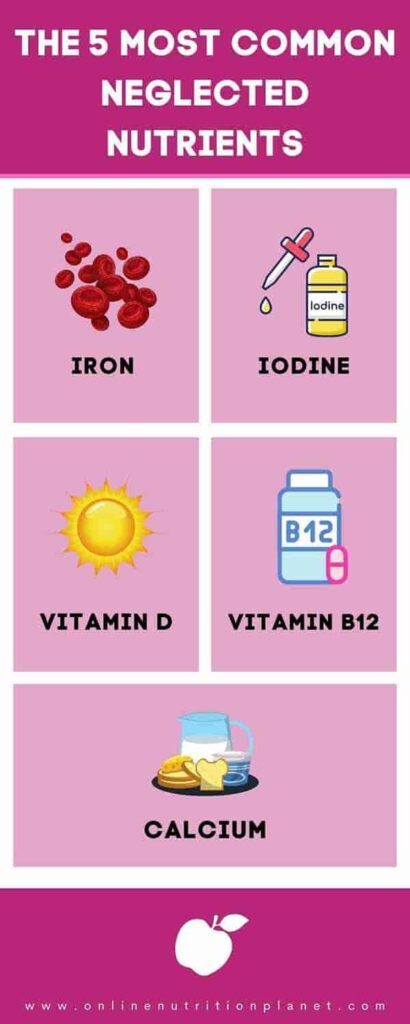
- Iron
- Iodine
- Vitamin D
- Vitamin B12
- Calcium
Let’s take a look at some more information on these commonly neglected nutrients and how they can affect our bodies.
Iron
Iron is an essential mineral that the body needs. It is found mostly in red blood cells and binds with hemoglobin to transport oxygen to your bodily cells. The two types of iron found in foods are heme iron which is found mostly in red meats and non-heme iron which is found in animal and plant foods. Non-heme iron is more common, however, it is not absorbed easily by the body.
Iron deficiency is one of the most common deficiencies in the world. It affects over 25% of the worldwide population. Pre-school children tend to be very commonly deficient in iron and many menstruating women can be deficient due to the monthly blood loss. Pregnant women are also commonly deficient in iron as well as many vegetarians and vegans due to their lack of heme iron in the diet.
The most common problem caused by iron deficiency is anemia which is a condition that reduces the number of red blood cells in your body and reduces your ability to carry oxygen.
Below is a list of the best sources of dietary iron:
Heme Iron
- Red meats
- Organ meats
- Shellfish
- Canned sardines
Non-Heme Iron
- Seeds
- Beans
- Dark, leafy greens
Iodine
Iodine is an essential mineral that is needed for the production of thyroid hormones and for normal thyroid function. The thyroid hormones control many bodily processes such as brain development, growth, regulating your metabolic rate, and bone maintenance.
Iodine deficiency is extremely common and affects almost a third of the world’s population. A deficiency in iodine can cause your thyroid to become enlarged and may also cause an increase in heart rate, weight gain, and shortness of breath. A severe deficiency could cause serious harm and can be especially harmful to children. These cases can lead to development abnormalities and mental retardation.
Below is a list of the best sources of dietary iodine:
- Dairy
- Fish
- Seaweed
- Eggs
Vitamin D
Vitamin D acts as a steroid hormone in the body and travels through your blood and into your cells, getting them to turn your genes off or on. Almost all of the cells in the body have a receptor for Vitamin D. This vitamin is produced by cholesterol in your skin upon exposure to sunlight. Sunlight is the best source of vitamin D.
A deficiency in vitamin D is not usually very obvious and the symptoms tend to be quite subtle. Adults that are deficient in vitamin D could experience things such as muscle weakness, an increased risk of fractures, and bone loss. In children, it can cause delays in growth and soft bones. A lack of vitamin D may also contribute to reduced immune function and an increase in your risk of some cancers.
There are not many foods that contain a lot of vitamin D. However, below is a list of the best dietary sources of vitamin D:
- Salmon
- Mackerel
- Trout
- Sardines
- Cod liver oil
- Egg yolks
Many people take supplements to increase their intake of vitamin D since it’s quite hard to get enough through diet alone.
Vitamin B12
Vitamin B12 is a water-soluble vitamin that is essential for blood formation, nerve function, and brain function. Every single cell in the body needs vitamin B12 to function properly, however, your body is unable to produce it on its own. This means that you need to get it from food or supplements.
This vitamin is only found in decent amounts in animal foods such as meat, however, some seaweed types can also provide small amounts. Vegetarians and vegans tend to be deficient in vitamin B12.
One of the most common symptoms of vitamin B12 deficiency is megablastic anemia. This is a blood disorder that causes enlarged red blood cells. Some other symptoms can include elevated homocysteine levels, impaired brain function, and increased risk of certain diseases.
Below is a list of the best sources of dietary Vitamin B12:
- Organ meats
- Shellfish
- Eggs
- Meats
- Milk products
Calcium
Calcium is essential for all of the cells in the body. It mineralizes the bones and teeth and is especially important for maintaining healthy bones. Calcium also serves as a signaling molecule. Your heart, muscles, and nerves need calcium to function properly. Calcium concentration in your blood is regulated and any excess calcium is stored in your bones. If your blood lacks calcium, your bones will start to release it.
One of the most common problems caused by calcium deficiency is osteoporosis. This is characterized by softer and more fragile bones.
Below is a list of the best sources of dietary Calcium:
- Dark green vegetables
- Bones fish
- Dairy products
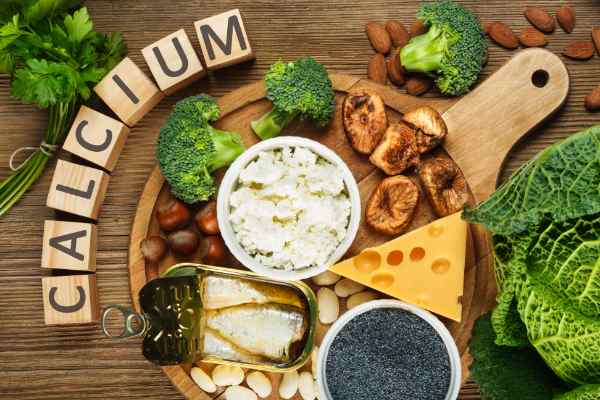
What Does a Nutrient Do For Your Body?
Nutrients have many key roles within the body. Whenever we eat, we’re not only doing so to reduce our hunger, but we’re also getting nutrients from the food that our body needs to survive.
We create energy through eating, and this allows us to complete all of our daily tasks and stay awake until it’s time to go to bed. The structural components that make up the human body such as the organs, muscles, and bones, are also made up of some of the nutrients from food. This is why it’s very important to try to get all of the nutrients needed so that your body can continue to function effectively.
What Is An Example of a Nutrient?
Nutrients found in foods include proteins, vitamins, minerals, fats, and carbohydrates such as sugars and dietary fiber. These nutrients have very specific roles in bodily functions.
Proteins
Proteins are the main nutrient in the body. These make up muscles, internal organs, skin, blood, and more. Without enough protein, the body can’t stay in a healthy state. There are 20 different types of amino acids that make up the proteins needed in the body. Nine of these amino acids are not made within the body and are, therefore, regarded as essential amino acids. These types of acids must be consumed as part of the diet. Healthy proteins include meat, fish, and eggs.
Fats and carbohydrates
Fats and carbohydrates are responsible for providing energy to the body. We know that consuming large amounts of fat can cause some problems such as obesity, however, small amounts of fat are very good for the body and provide a lot of energy needed to keep going.
Carbohydrates are broken down into sugars and dietary fibers. Sugars can be used as an energy source and are stored inside the liver and muscles as glycogen. Sugars are also the main energy source needed in the brain. Dietary fiber is a major nutrient that helps to increase the amount of good bacteria in the digestive area of the body.
Fats can be found in the fatty portion of meats and can also be found in cooking oils. Sugars can be found in potatoes, sugar, grains, and fruits.
Vitamins and Minerals
Vitamins and minerals are important for helping to keep the body healthy by aiding in breaking down and building up proteins, sugars, and fats. Vitamins are organic compounds that are mostly impossible for the body to synthesize.
A lack of vitamins can often lead to a variety of deficiency-related diseases and problems. Vitamins can be found largely in fruits and vegetables.
Minerals are known as inorganic matter. Mineral is a general term for the chemical elements that make up the body. Examples include carbon, oxygen, hydrogen, and nitrogen. There are 16 different minerals in total that the human body needs including sodium, calcium, and iron. These minerals can be found in vegetables, fruits, seaweed, milk, and other dairy products.
Which Nutrient is Needed For Growth and Repair of Cells?
Proteins are the building blocks of the body. This is because they are critical for the growth and repair of the cells in your body. Proteins make up a major part of your organ cells, muscles, nails, hair, skin, and bones. Protein can also be found in most of your bodily fluids.
When the cells in your body become damaged or die, your body generates new cells to replace them. Your body does this through a process called cell division. This is where one cell splits into two identical cells and those then split into four cells and so on. Many cells of the body are constantly dividing.
When you eat food, this provides you with the energy and the nutrients needed for the cells to grow and repair and to regulate bodily functions. There are at least 50 nutrients that help to build and maintain the cells and tissues of the protein and the main nutrient needed for these processes is protein.
Below is a list of some of the best sources of protein:
- Lean meats
- Eggs
- Poultry
- Seafood
- Beans
- Peas
- Soy products
- Dairy products
- Nuts
- Seeds
Proteins consist of amino acids and nine of those amino acids can’t be made by the body. These amino acids can only be obtained through food so that’s why it’s very important to stick to a good, balanced diet that is rich in protein.
Final Thoughts
As you can see, nutrients are very important for the body and a lack of nutrients can cause a lot of different problems. That’s why it’s so important to try to avoid a lack of nutrients. The best way that you can ensure you get the right amount of nutrients is to ensure you stick to a healthy, balanced diet that is high in nutrients. If your diet is lacking any particular nutrients that your body needs, it’s a good idea to take supplements to ensure you avoid a nutrient deficiency.

